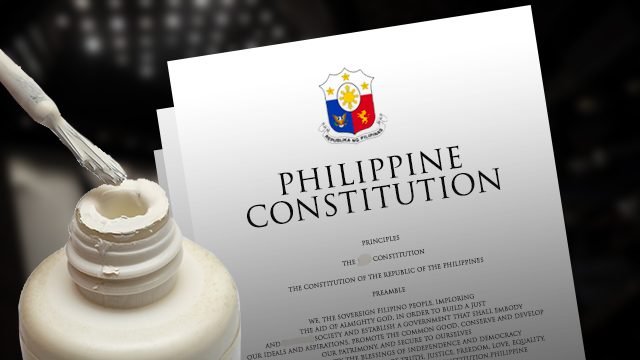The Philippines has a presidential, unitary, and constitutional republic with a multi-party system. The 1987 Philippine Constitution, the country's current constitution, can be amended through a process called "Constitutional amendment" or "Charter change" (Cha-cha). The process of amending the constitution involves several steps, including proposal, deliberation, and ratification.
The Constitution can be amended by Congress through a vote of three-fourths of all its members, or through a Constitutional Convention called for the purpose, or through people's initiative. The proposed changes must also be ratified by a majority of the votes cast in a plebiscite. The process of amending the constitution is often a contentious issue in the Philippines, with different political groups having varying opinions on the need and the specifics of any proposed changes.
It is long overdue to change the constitution which put the country in its status quo. It is high time to reform. If not now, when? That's the question.
Benefits of reforming the 1987 constitution of the Philippines
- Improved governance: A reformed constitution would provide a clearer and more efficient system of governance, ensuring that public officials are held accountable for their actions and that the rights of citizens are protected.
- Economic growth: A reformed constitution would help to create a more stable and predictable economic environment, encouraging investment and promoting economic growth.
- Better representation: A reformed constitution would ensure that all citizens are represented in government and that their voices are heard in the political process.
- Increased autonomy: A reformed constitution would give more power to local governments, allowing them to make decisions that are best for their communities.
- Improved social services: A reformed constitution would provide for better access to education, healthcare, and other social services for all citizens, regardless of their socioeconomic status.
- Enhanced human rights: A reformed constitution would ensure that the rights of all citizens, including minority groups, are protected and upheld.
- Greater accountability: A reformed constitution would make it easier for citizens to hold public officials accountable for their actions and to hold them to account if they fail to perform their duties.
- More efficient government: A reformed constitution would make the government more efficient by streamlining bureaucratic processes and reducing red tape.
- Stronger democracy: A reformed constitution would help to strengthen democracy by ensuring that citizens have a greater say in how their government operates.
- Improved foreign relations: A reformed constitution would help to improve relations with other countries by providing a stable and predictable political environment.
Only the stupid groups like the Makabayan bloc, fake economist Winnie Monsod among others are against constitution reform. Their solution is "vote wisely" which did not work for over 36 years now.










